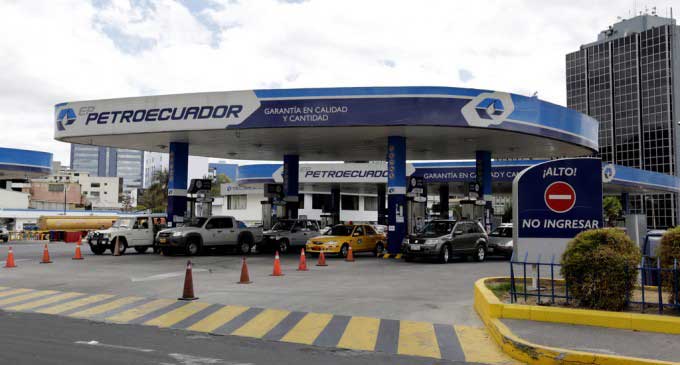On May 17th, President Daniel Noboa of Ecuador provided a comprehensive review of his administration’s first six months in office during an interview with the EFE agency.
Describing the first six months of his Presidency as “very intense,” Ecuador’s President Daniel Noboa highlighted significant improvements in various national issues and expressed his commitment to maintaining this momentum. One of the key topics he addressed was the government’s plan to refine and target fuel subsidies, particularly for Extra and Ecopaís gasoline.
Noboa revisited an idea that had been considered by previous administrations: the elimination and focusing of gasoline subsidies. The president emphasized the importance of these changes in the context of the nation’s economic landscape. He clarified that subsidies for diesel and domestic gas would remain untouched due to their direct impact on the cost of living, transportation, and agriculture, which are vital to the daily lives of Ecuadorians.
“We are not going to touch this because they have a direct correlation with the cost of living, with transportation, and with agriculture. We cannot do that,” Noboa stated.
However, the president did announce a strategic shift in subsidies for Extra and Ecopaís gasoline, low-octane fuels that constitute a relatively minor part of national consumption.
“We should eliminate that little by little, amid the groups that do not need [the subsidy],” Noboa said, indicating a phased approach aimed at reducing unnecessary subsidies. This strategy aligns with a plan unveiled by the Ministry of Finance in February 2024, which projected savings of up to $550 million by refining subsidy allocations.
The targeting of these subsidies, according to Noboa, is designed to protect essential services and vulnerable populations. He said that public transportation, rural transit, and taxi services would continue to benefit from a band system that mitigates the impact on the cost of living.
Noboa added that this nuanced approach “aims to balance fiscal responsibility with social stability, ensuring that the most critical sectors remain supported.”
Economic scene
Ecuador’s inflation management was another point of pride for Noboa, who noted that inflation had been kept under control, closing at 2.4% annually as of April 2024. Quito, the capital city, recorded the highest annual inflation rate at 2.80%. These figures reflect a relatively stable economic environment, which Noboa attributed to effective financial policies and the country’s commitment to dollarization.
President Noboa also addressed the country’s risk rating, which had seen a significant improvement during his tenure. He cited a reduction from 2,400 points at the start of his administration to 1,100 points, underscoring efforts to stabilize and improve Ecuador’s financial standing. However, he acknowledged that the country risk had recently risen to 1,211 points as of May 15th, a development that coincided with declining popular acceptance of his administration.
In discussing fuel prices, Noboa provided a detailed overview. Since July 2022, prices for regular gasoline and diesel have been frozen at $2.40 and $1.75 per gallon, respectively.
These prices saw a slight increase in April 2024 due to adjustments in the value-added tax (VAT), rising by 5 to 6 cents per gallon.
Extra and Ecopaís gasoline currently cost $2.465 per gallon, while a gallon of diesel is priced at $1.797, both including state subsidies.
Super gasoline, which does not receive a state subsidy, fluctuates monthly based on international market conditions, with a reference price of $4.21 per gallon as of May 2024.
Additionally, the price of domestic gas cylinders was adjusted from $1.60 to $1.65, factoring in VAT increases and delivery costs.
President Noboa’s interview underscored a critical juncture for Ecuador’s economic policies, particularly in the realm of fuel subsidies. His administration aims to navigate the delicate balance between fiscal prudence and social equity, ensuring that essential services remain affordable while reducing unnecessary financial burdens on the state.



0 Comments